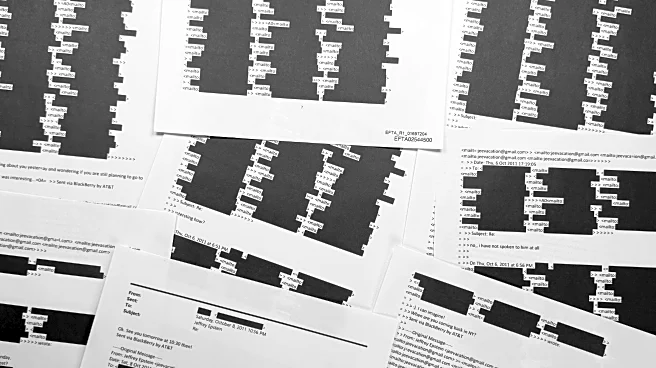What's Happening?
The U.S. Department of Justice has announced charges against two real estate executives for allegedly misappropriating millions of dollars in state funds intended to combat homelessness. Brentwood resident Steven Taylor faces multiple charges, including
bank fraud and money laundering, for using fake bank statements to secure loans for real estate transactions. One such transaction involved a nursing home in Los Angeles, which was flipped for a profit using funds from the Homekey initiative, a program designed to convert buildings into shelters for the homeless. Taylor allegedly deceived lenders by claiming he would renovate the property himself, while secretly planning to sell it to the nonprofit Weingart Center Assn. for a much higher price. In a separate case, Cody Holmes, CFO of Shangri-La Industries, is accused of submitting false financial documents to obtain Homekey funds, which were then used for personal expenses. The DOJ's actions are part of a broader investigation into fraud and corruption in local homelessness funding.
Why It's Important?
These charges highlight significant concerns about the misuse of public funds intended for homelessness initiatives, a critical issue in Los Angeles and other urban areas. The alleged fraud undermines efforts to address homelessness, a persistent problem affecting thousands of individuals. The DOJ's actions signal a commitment to ensuring accountability and transparency in the use of taxpayer money. This development may lead to increased scrutiny of similar programs and could prompt reforms to prevent future abuses. Stakeholders, including government agencies and nonprofit organizations, may face pressure to improve oversight and financial management practices to restore public trust.
What's Next?
The DOJ has indicated that these cases are just the beginning of a broader investigation into potential fraud involving homelessness funds. As the investigation progresses, more individuals and organizations may be implicated, leading to further legal actions. The Los Angeles Mayor's office has expressed a commitment to working with federal authorities to ensure accountability. This could result in policy changes or new regulations aimed at preventing fraud in public funding. Additionally, the ongoing scrutiny may impact future funding allocations and the operation of homelessness programs in the region.
Beyond the Headlines
The ethical implications of these cases are profound, as they involve the exploitation of funds meant to aid vulnerable populations. The alleged actions of the executives not only divert resources from those in need but also erode public confidence in charitable and government efforts to address social issues. This situation may prompt discussions about the moral responsibilities of businesses and individuals involved in public welfare initiatives. Long-term, it could lead to a reevaluation of how such programs are structured and monitored to ensure they effectively serve their intended purpose.
















